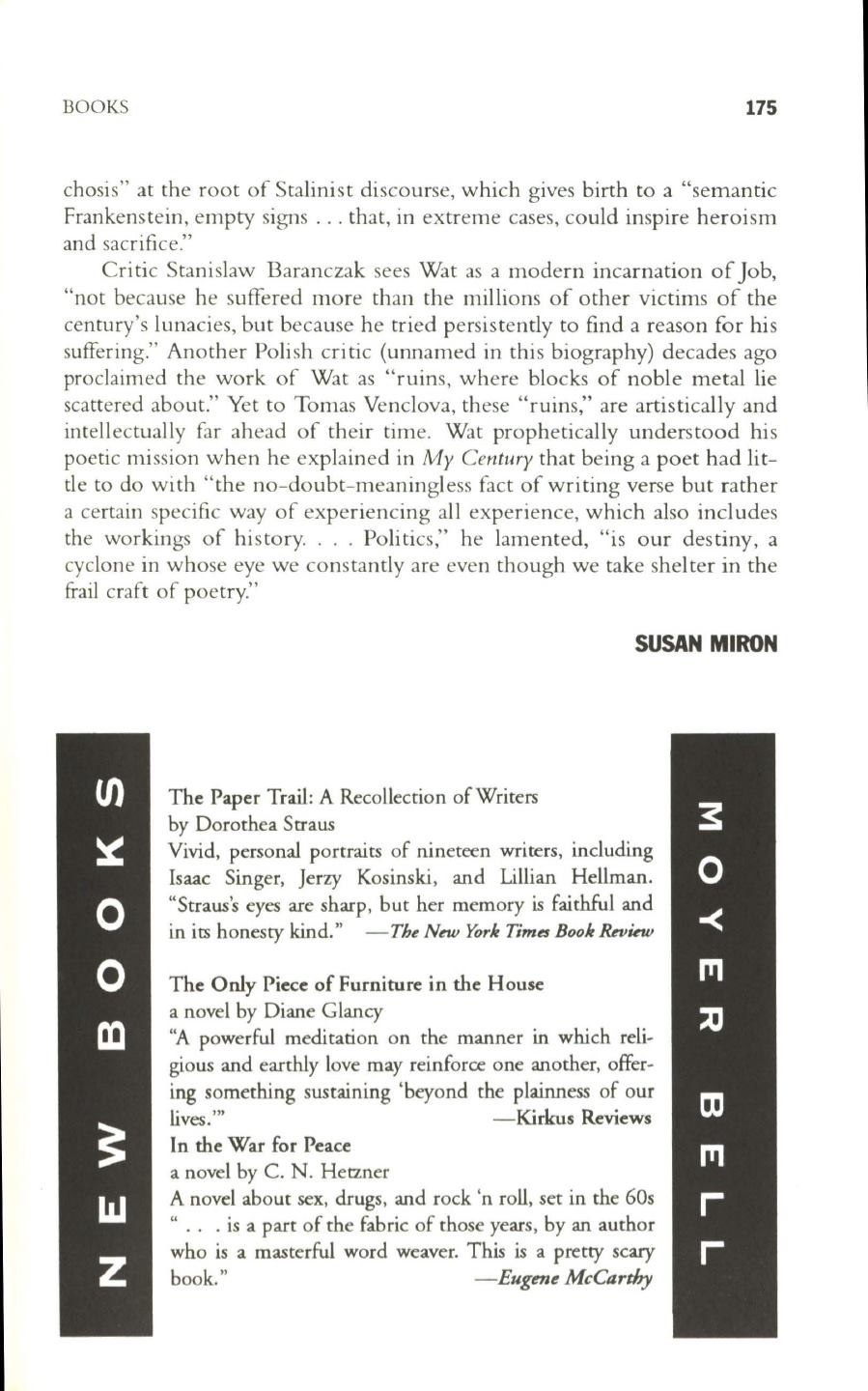
BOOKS
175
chosis" at the root of Stalinist discourse, which gives birth to a "semantic
Frankenstein, empty signs ... that, in extreme cases, could inspire heroism
and sacrifice."
Critic Stanislaw Baranczak sees Wat as a modern incarnation of Job,
"not because he suffered more than the millions of other victims of the
century's lunacies, but because he tried persistently to find a reason for his
suffering." Another Polish critic (unnamed in this biography) decades ago
proclaimed the work of Wat as "ruins, where blocks of noble metal lie
scattered about." Yet to Tomas Venelova, these "ruins," are artistically and
intellectually far ahead of their time. Wat prophetically understood his
poetic mission when he explained in
My
Cent~lry
that being a poet had lit–
tle to do with "the no-doubt-meaningless fact of writing verse but rather
a certain specific way of experiencing all experience, which also inel udes
the workings of history. ... Politics," he lamented, "is our destiny, a
cyclone in whose eye we constantly are even though we take shelter in the
frail craft of poetry."
The Paper Trail: A Recollection of Writers
by Dorothea Straus
SUSAN MIRON
Vivid, personal portraits of nineteen writers, including
Isaac Singer, Jerzy Kosinski, and Lillian Hellman.
"Straus's eyes are sharp, but her memory is faithful and
in its honesty kind."
-The New York Times Book &view
The
Only
Piece of Furniture in the House
a novel by Diane Glancy
"A powerful meditation on the manner in which reli–
gious and earthly love may reinforce one another, offer–
ing something sustaining 'beyond the plainness of our
lives.'"
-Kirkus Reviews
In the War for Peace
a novel by
C.
N. Hetzner
A novel about sex, drugs, and rock 'n roll, set in the
60s
" .. . is a part of the fabric of those years, by an author
who is a masterful word weaver. This is a pretty scary
book."
-Eugene McCarthy


